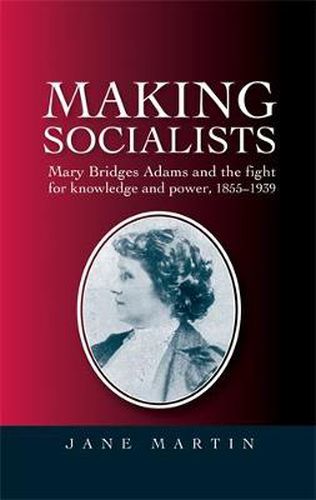Making Socialists combines a biographical study of a (nowadays) virtually unknown woman with an original exploration of several major themes in late nineteenth and early twentieth century political and educational history. Beautiful, tireless, courageous and principled, Mary Bridges Adams gave up her life for the ‘religion of socialism.’ Encouraged by William Morris and with the financial support of the Countess of Warwick, later the lover of King Edward VII, she devoted her energies to demands for social reform and war-resistance. During the First World War she began to assist emigres threatened with being sent back to Tsarist Russia, by which time she had a wide range of contacts among suffragettes, trade unionists and socialists, as well as Russian political refugees. Guiding the campaign in defence of the right of asylum she came under suspicion, the police and Special Branch ransacked her home, and she was detained for 30 hours. More than a local politician, Mary Bridges Adams was among the dynamic late nineteenth-century women activists who sought to transform government policy through socialist initiatives, with the ultimate (utopian) aim of creating a social nation. The author has assembled a thorough range of sources, including new materials that will bring fresh insights to this biography and more generally to Labour Party and socialist historiography, well-studied topics. The people Adams knew and the circles in which she travelled are particularly attractive features of this book. Foes thought her an awful woman: friends like George Bernard Shaw remembered the power of her oratory. Placed against the circumstances in which she lived and presented as part of a militant and anti-capitalist tradition within labour history, her life story contributes to new ways of seeing both socialist and feminist politics.
Read More





